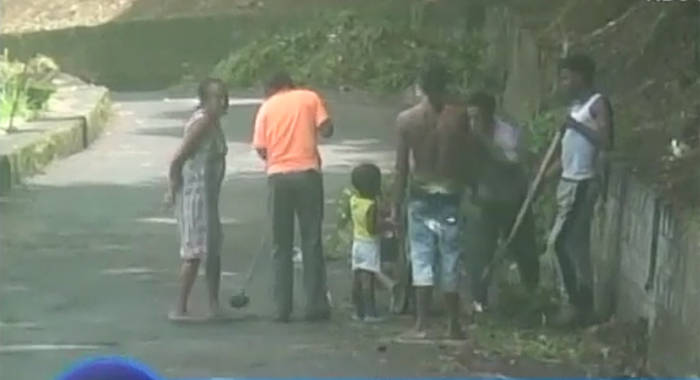By Christopher J. Grant
“Do the best you can until you know better; then when you know better, do better.” — Maya Angelou.
This is a quote that speaks volumes in relation to how efficient one can be. We must always do the best that we can until we know better then, we do better.
I do believe that we can do better in relation to having a bit more respect and care for those who, out of a financial need, are forced to clean the roads in the Road Cleaning Programme. Is there any respect for these people’s health and safety?
There is the Occupational Health and Safety Act of 2017. Section 19 (1) of this act states that it is the duty of every employer to ensure, so far as is reasonably practicable, the safety, health and welfare at work, of all his employees. However, when I see the conditions under which many of these roads gangs have to work, I wonder if this act applies to them. Too often do we see young women and men in drains without the proper safety gear (goggles, boots, gloves, face masks) and in clothing that leaves their bodies totally exposed. I must inform you that section 24 (1) of the Occupational Health and Safety Act states, among other things, that it is also the duty of the employee to take reasonable care for the safety and health of himself while at work, and for those persons who may be affected by his acts, or his omissions at work.
However, We are talking about around 5,000 people who are in dire need of resources to pay for their children’s school fees soon after the work is finished. Can we really rely on these people to afford the necessary gear?
There is definitely an epidemic waiting to happen if we don’t address this. The drains that were referred are often a refuge for rodents and stray animals. Do we not know that leptospirosis has and continues to affect St. Vincent and the Grenadines?
In a May 14, 2019 article entitled “Leptospirosis: Beware of Rats!”, published in the Searchlight newspaper, Dr. Rosmond Adams says leptospirosis is an infection in rodents and other wild and domesticated species. This infection in humans is contracted through the mucosa of the nose, mouth and eyes and skin abrasions. A person can become exposed to the bacteria through water contaminated by urine from infected animals.
He further stated that people who work outdoors, like agricultural workers or those who dwell in the hills, are particularly at risk. Interestingly enough, leptospirosis can cause a wide range of symptoms, which are often mistaken for other diseases. Moreover, he noted that there were reported cases of deaths from leptospirosis in St. Vincent and the Grenadines. This is just one example of a disease that can be spread and the workers can also come into contact with human urine and or fecal matter. To add insult to injury, there are times when we see parents being allowed to have their very young children onsite with them and at times, also assisting. This puts these children at risk.
I understand that these people are in dire need of funds. Nevertheless, after so many years of organising these road gangs to clean the roads, can we not do better to ensure their health and safety?
Let us not make “giving mothers an opportunity to make some money to pay for their children’s school fees” an excuse to not also care for their health and safety.
We know better, do better!
The opinions presented in this content belong to the author and may not necessarily reflect the perspectives or editorial stance of iWitness News. Opinion pieces can be submitted to [email protected].







Fully agree with this article. We should not wait for this to get out of hand to take action.
Do U know that there’s a drain at Belle Isle where these people will go n work in…it’s a septic drainage from the prison waste system
Who should provide the safety gear. Is it that you are saying they shouldn’t work with out safety gear. If so that true in most developing countries that is how it is you must provide your own safety shoes etc. But peopl in SVG does not have that capability so you prefer them to be out of a job can’t provide for their families?